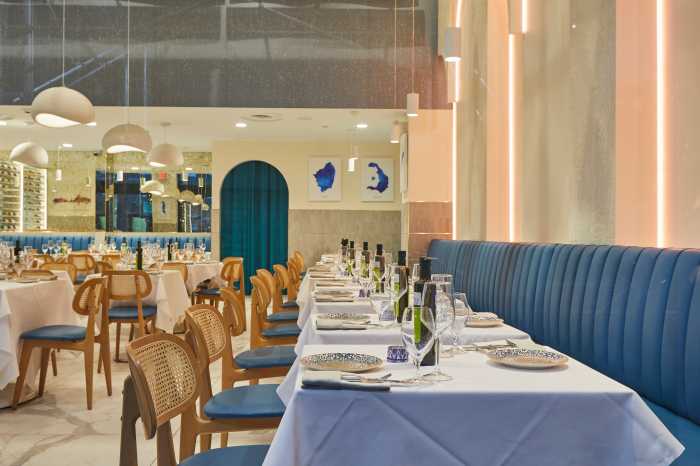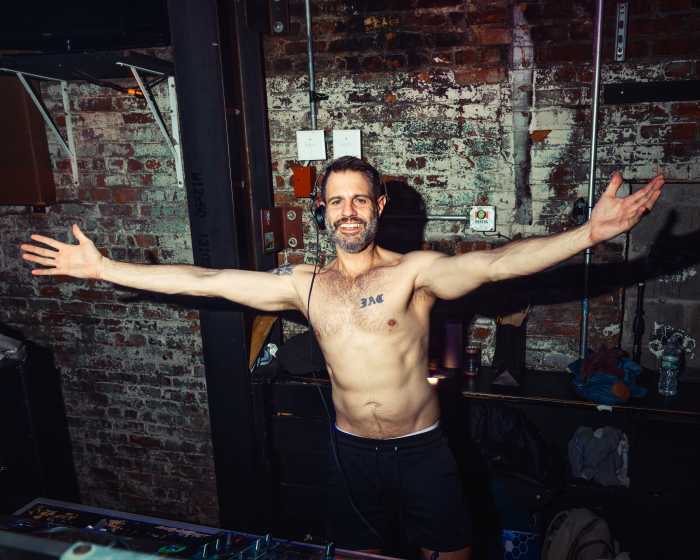By Patrick Hedlund
New electronics
AC Gears, spawned from the once exclusively Web-based electronics seller AudioCubes.com, plans to import its innovative Japanese and European technology into 930 square feet of space at 69 E. Eighth St. between Broadway and University Pl.
The company signed a 10-year lease with an asking rent of $130 per square foot, confirmed owner Kohn Liu, and will open in late November or early December.
“Most of the products that we sell are very trendy — pretty much the first kind of items released in Japan not yet available in the U.S.,” Liu said of his wares, which range from mp3 players and headphones to watches and toys,
The store will feature an all-white interior, polished concrete, listening stations and other graphic-design elements. Liu cited the confluence of young professionals and students in the N.Y.U. area as the reason for choosing the neighborhood. He plans to open stores in Soho and Chelsea in the coming years.
Bar closing
A bar on a busy stretch of Orchard St. on the Lower East Side has been forced to shutter after the state recently denied a liquor-license transfer at the popular dance-music location.
The establishment, 200 Orchard, located between Houston and Stanton Sts., received word that the State Liquor Authority denied a liquor-license transfer at the location in an Oct. 17 decision. The ruling, according to 200 Orchard owner Ray Burns, stated, “that it’s not in the best interest of the community” for the nine-month-old bar and venue to possess a license.
Burns applied for the transfer about a year and a half ago and had been operating on a temporary liquor license since opening in February. The space officially closed it doors on Sunday night, the day before the temporary license expired, he said.
“There were actually people crying at the bar,” said Burns, who has collected nearly 1,600 signatures on a petition to appeal the S.L.A. ruling.
Community Board 3 had voted in May 2006 not to support the transfer request, citing that former occupant Orchard Bar had a history of noise complaints. The board also counted 11 liquor licenses on Orchard between Houston and Stanton Sts.
C.B. 3 District Manager Susan Stetzer noted this particular area “is totally overwhelmed and extremely loud,” and that 200 Orchard hadn’t necessarily been singled out for denial. She said the owners should have been aware of the 500-foot rule, which discourages bar density unless the establishment can prove it’s a benefit to the community.
Burns said he soundproofed the venue, installed surveillance cameras, hired additional security and reached out to the local police precincts. Since opening, he noted, the bar has prompted no complaints to police or 311.
Perry St. hotel
Community Board 2 overwhelmingly voted against recommending a planned hotel on Washington St. because it would have threatened the historic district’s low-rises and courtyard character — including its trees.
The proposed project, located at 703-711 Washington St./145 Perry St., sought to build an eight-plus-story penthouse hotel that initially appeared to be a “slam dunk” for the developer, said Sean Sweeney, Board 2 Landmarks Committee chairperson.
But after a large turnout of residents stormed into the committee meeting on Oct. 15 — citing concerns over the building obscuring residents’ wooded courtyard space and the demolition of a one-story building — the full board voted unanimously to deny recommending the project a few days later.
According to Sweeney, the proposed hotel would have blocked incoming light to the area’s “iconic” courtyards, cutting off sunshine to trees.
The developer also wanted to raze a one-story, “simple stucco” industrial building for the hotel, but the board stated that the area’s historic district designation does not indicate whether or not the low-rise structure contributes to the fabric of the historic district.
“At the current rate [of development], there will be no more one- and two-story buildings,” Sweeney said. “Yet at the time of designation these buildings were considered valuable enough to be included in the landmarked district.”
Bowery open letter
What about the Bowery?
That’s what one concerned resident has asked the city as it pushes forward with nearby rezoning plans that disregard the historic stretch.
In an open letter calling on the Department of City Planning to include the Bowery in its rezoning of the East Village and Lower East Side, Rob Hollander, of L.E.S. Residents for Responsible Development, criticized the city for “exposing the Bowery to out-of-scale hotel development” by withholding the boulevard from the proposal.
His letter — which had 76 signatures as of Tuesday — stated that future gentrification and development along the Bowery would spur commercial and residential displacement, harassment by landlords, upscale nightlife and “transform Chinatown beyond recognition” if the avenue isn’t included in the rezoning.
In response, an agency spokesperson said that the Bowery had never been a part of the plan because the rezoning sought to focus on the area “most under threat.” The Bowery “is very different compared with the lower-to-medium density of the East Village and Lower East Side,” with its wider avenues and larger built form, the spokesperson said.
Among those signing the petition were Martha Danziger, former Community Board 3 district manager; Katharine Wolpe, Village Independent Democrats president; Don MacPherson, a Community Board 2 member; and local activists Frances Goldin, Bob Ortiz and Quinn Raymond.






































